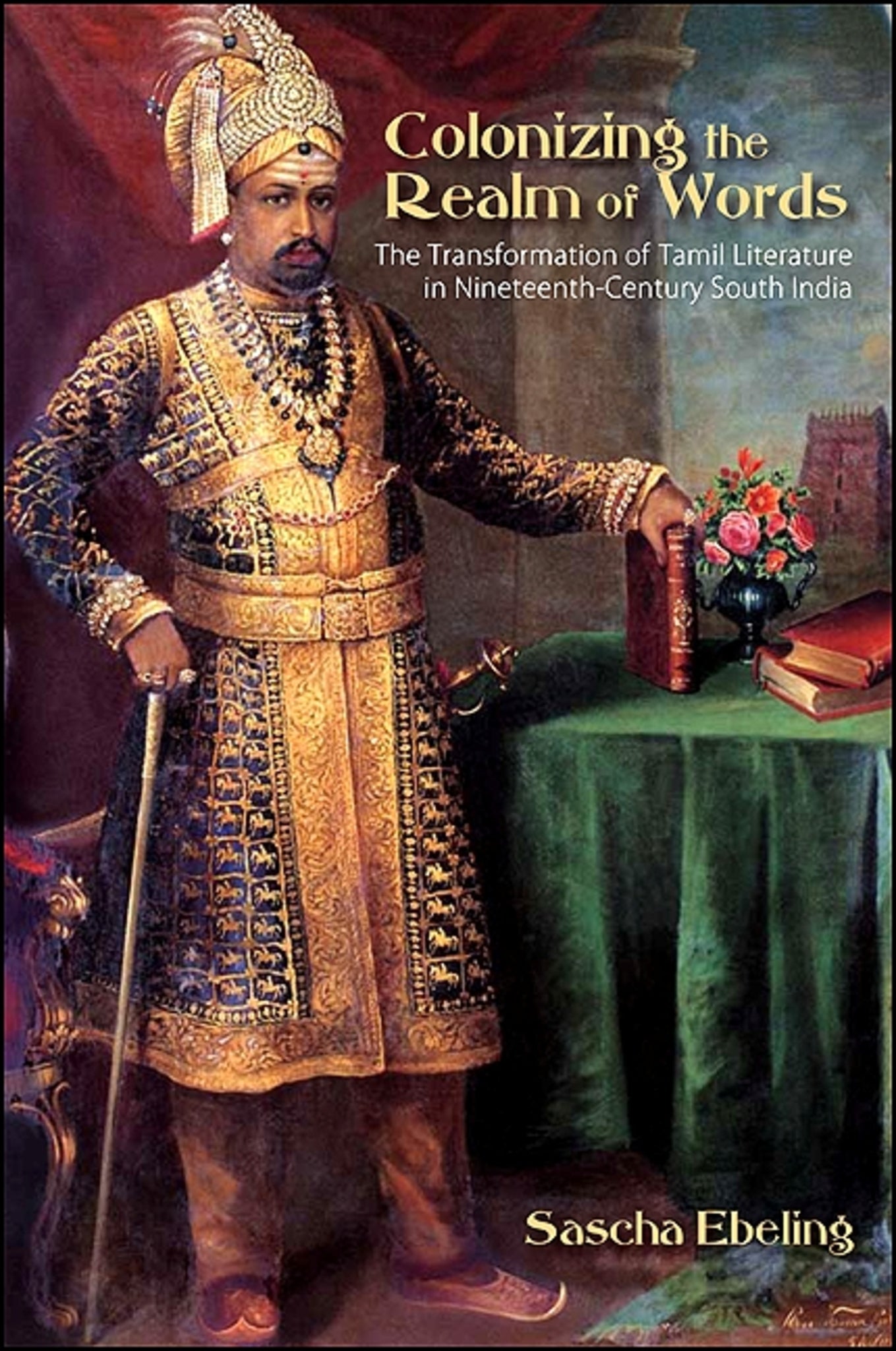We're sorry. An error has occurred
Please cancel or retry.
Colonizing the Realm of Words

Some error occured while loading the Quick View. Please close the Quick View and try reloading the page.
Couldn't load pickup availability
- Format:
-
02 July 2011

Details the transformation of Tamil literary culture that came with colonialism and the encounter with Western modernity.
A true tour de force, this book documents the transformation of one Indian literature, Tamil, under the impact of colonialism and Western modernity. While Tamil is a living language, it is also India's second oldest classical language next to Sanskrit, and has a literary history that goes back over two thousand years. On the basis of extensive archival research, Sascha Ebeling tackles a host of issues pertinent to Tamil elite literary production and consumption during the nineteenth century. These include the functioning and decline of traditional systems in which poet-scholars were patronized by religious institutions, landowners, and local kings; the anatomy of changes in textual practices, genres, styles, poetics, themes, tastes, and audiences; and the role of literature in the politics of social reform, gender, and incipient nationalism. The work concludes with a discussion of the most striking literary development of the time-the emergence of the Tamil novel.


"Colonizing the Realm of Words is a major contribution to the study of Tamil literature … The book gives a wonderful, detailed picture of the biographies, writings and contexts of some of the most important authors in Tamil of the nineteenth century." — Relegere: Studies in Religion and Reception
"…[Ebeling] provides a detailed philological study of the Tamil texts, especially the poetics of Minatcicundaram Pillai and the Pulavars and the emergence of the Tamil novel. The transliterated Tamil texts following the epilogue make this book valuable indeed." — CHOICE
"This is a pathbreaking study of textual materials that have not been examined before in an English-language publication. It fills a major gap in our understanding of nineteenth-century literary culture in South India specifically and in India generally." —Srilata Raman, author of Self-Surrender (Prapatti)to God in Śrīvaiṣṇavism: Tamil Cats and Sanskrit Monkeys
"This book is impeccably grounded in philological expertise, and the author displays mastery of the language and the complex texts that he discusses. The entire book is conceived with great elegance." — Indira Viswanathan Peterson, coeditor of Tamil Geographies: Cultural Constructions of Space and Place in South India
List of Figures and Tables
Preface and Acknowledgments
List of Abbreviations
Note on Transliteration, Pronunciation, and Translations of Tamil Primary Sources
Chapter 1
Introduction
Colonizing the Realm of Words: Literature and Colonialism
Tamil Literature in Nineteenth-Century South India
How to Ignore a Century of Literary Production
A Century of Cultural Change
In Search of a Lost Literature: The Chapters of This Book
Chapter 2
Mapping the Universe of the Pulavar: Ti. Mīnātcicuntaram Pillai (1815–1876) and the Field of Traditional Literary Practices
Pulavar Education and Pre-Modern Tamil Poetics
The Pulavars’ Genres: Pirapantam Works and Temple Myths (talapurānam)
Scholarship in the Name of the Lord: Monasteries as Patrons
When One’s Fame Rises to the Heavens: The Pulavars’ Economy of Praise
"Addressing the Assembly of Poets" (avaiyatakkam)
The Public Premiere (arankērram)
Occasional Poems (tanippātal) and Epistolary Poems (cīttukkavi)
The Spoken and the Written Word: Composition, Performance, and Transmission
Of Gods and Kings: Themes and Contents of Pulavar Literature
The Uses of Akam Poetics in the Nineteenth Century: The Kulattūrkkōvai (1853)
Makāvittuvān Ti. Mīnātcicuntaram Pillai: A Poets’ Poet
Chapter 3
Pulavars and Potentates: Structures of Literary Patronage at the Zamindars’ Courts and Beyond
Literature and Rituals of Courtly Representation
The System of Literary Patronage at the Zamindars’ Courts
A "Who Is Who" of Nineteenth-Century Royal Patrons and Their Poets
Thanjavur
Pudukkottai
Ramnad and Sivagangai
Smaller Zamindaris
Of Beauty and Benevolence: Themes of Courtly Literature
Kāmas's Arrows Whizzing Past the King: Royal Panegyrics and Eroticism in the Cētupati viralivitutūtu
The Pulavar in the Age of Mechanical Reproduction: Changes in Patronage
Chapter 4
Toward the Modern Tamil Author: The Colonial Critique of the "Vernacular" and Māyūram Vētanāyakam Pillai (1826–1889) as an Agent of Change
Māyūram Vētanāyakam Pillai: A Biographical Reconstruction
Writing for "the moral improvement of the Natives of India": The Nītinūl (1859)
Law, Women’s Education and Devotional Poetry: Vētanāyakam Pillai's Other Writings
Chapter 5
The Emergence of the Tamil Novel
The History of Prathapa Mudaliar (1879): An "approximation to a novel"?
The History of Suguna Sundari (1887): A "longwinded moral tale, weary and unprofitable"?
The Fatal Rumor or The History of Kamalambal (1893–1895): "Vedanta through fiction"?
Further Comparisons
Chapter 6
Epilogue
Appendices
The Dating of the Cētupati viralivitutūtu Revisited
Chronological Table of the Earliest Tamil Novels Published Before 1900
Original Tamil Texts Quoted and Annotations
Glossary
References
Index



